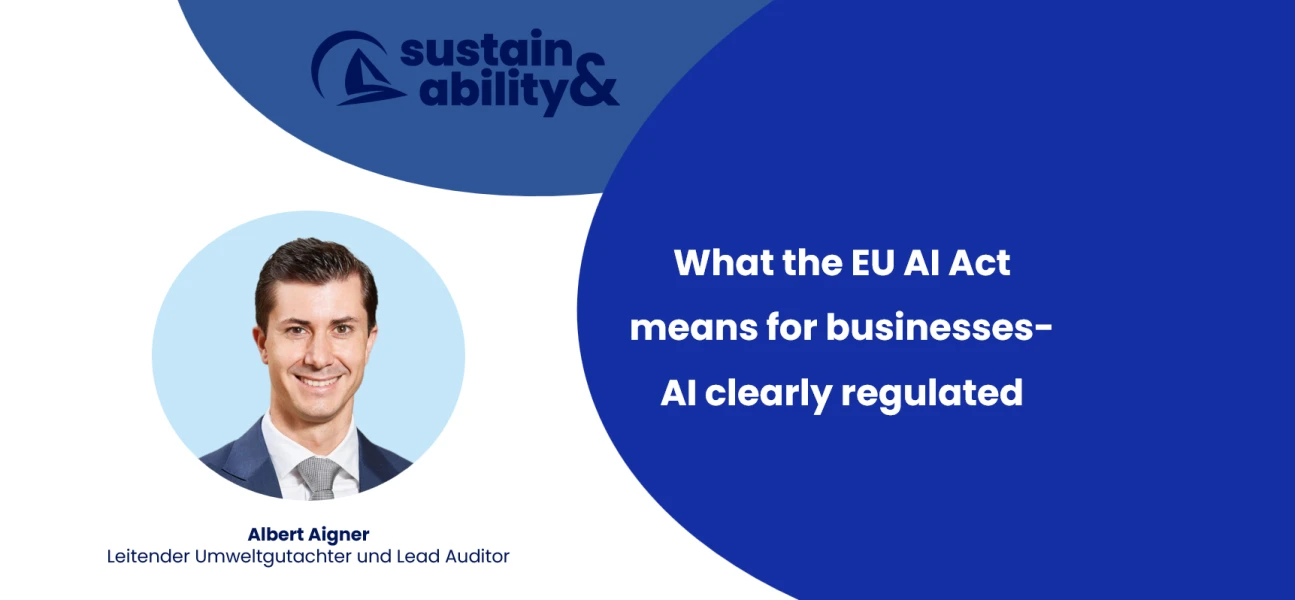What does the EU AI Act mean for businesses?

Artificial intelligence has long become part of the everyday operations of many companies—from chatbots in customer service to automated process control in production and administration. AI increases efficiency, reduces costs, and opens up new business opportunities.
However, as its use becomes more widespread, so does the responsibility:
How can we ensure AI does not turn into a black box, with unclear decisions, hidden risks, or even ethical issues for customers, partners, and the company itself?
This is exactly where the EU AI Act comes in.
What is the EU AI Act?
The EU AI Act is the first comprehensive and legally binding framework governing the use of artificial intelligence in Europe.
It applies to all providers and users of AI systems that place products, services, or models on the EU market or operate them within the EU—regardless of whether the company is based in the EU or not.
The goal is clear:
AI should be innovative, but also safe, transparent, and trustworthy.
What exactly is required?
Transparency, safety, and traceability: AI systems must be properly documented and verifiable.
Strict rules for high-risk AI: This includes applications in areas such as human resources, healthcare, transportation, critical infrastructure, or the judiciary. These systems are subject to extended obligations such as audits, documentation, and risk management.
Prohibited uses: Manipulative AI, covert behavioral influencing, or opaque decision-making in sensitive contexts are explicitly prohibited.
Disclosure requirements: Deepfakes, automated decisions, and AI-generated content must be clearly identified as such—for users and for authorities.
Obligations for businesses
Companies using AI must ensure that their systems are technically robust and organizationally well integrated. This includes:
• Training employees in the responsible use of AI
• Processes and governance structures to detect risks early
• Regular audits and documentation requirements
• Transparent communication with customers, regulators, and partners
Non-compliance can be costly:
The EU AI Act provides for fines of up to 7% of global annual revenue—significantly higher than under GDPR.
What does this mean for SMEs?
The EU AI Act is no cause for panic, but rather an opportunity to build trust and future-proof the business.
Small and medium-sized enterprises can benefit by deploying AI in a deliberate, traceable, and fair manner.
Those who:
• document their AI processes transparently,
• define clear responsibilities,
• and communicate openly about AI usage,
create the basis for responsible innovation—and gain the trust of customers, partners, and employees at the same time.
Our conclusion
Being successful with AI now also means knowing the rules—and actively implementing them.
The EU AI Act marks the beginning of a new era of artificial intelligence: moving away from unregulated experimentation toward reliable, responsible, and future-ready applications.
Those who take action now will help shape the framework—and position themselves as pioneers of trustworthy AI in Europe.